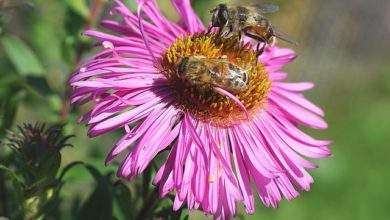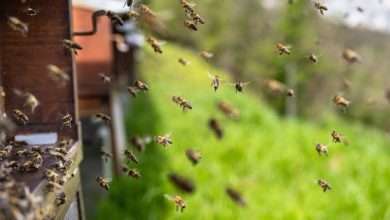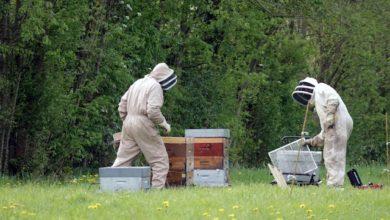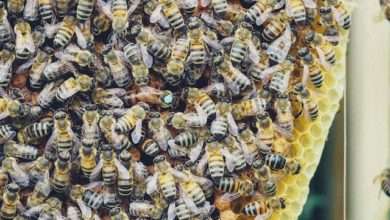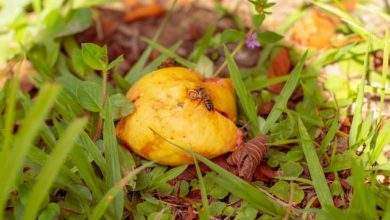Are Your honey Bees Aggressive?
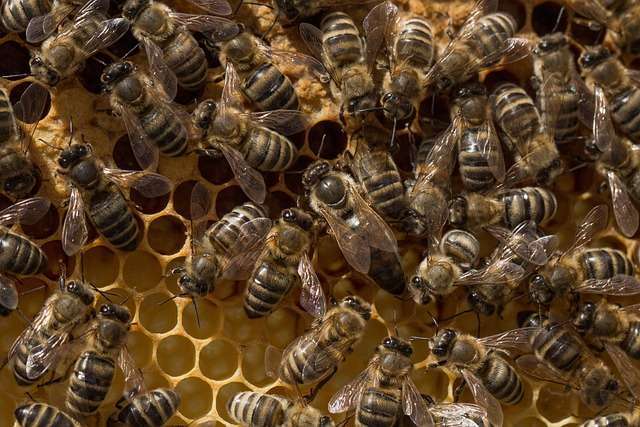
One of the most important issues to consider when dealing with honey bees is the potential for them to be aggressive. They can be extremely difficult to manage and be a danger to people and other animals if not managed properly. So what do we need to know about their aggressiveness? Let’s take a look.
What Do We Know About the Aggression of Honey Bees?
Honey bees are one of the most aggressive of all stinging insects. In the wild, these bees will defend their hive fiercely, often attacking and killing any intruders that threaten the hive. They do this using a variety of techniques, including “mobbing,” where the entire colony of bees swarms around the intruder, and “stinging,” where the bees sting their target multiple times.
In addition, they can release a chemical known as “alarm pheromone”, which can cause other bees in the area to become agitated and attack as well.
What Causes Honey Bees to be Aggressive
As much as we love honey bees and all the benefits they bring to the environment, we cannot deny that they can be quite aggressive at times. While they usually stay out of our way, they may become aggressive and attack us without warning, and this can be quite dangerous, particularly for people who are allergic to bee stings. So, what causes honey bees to be aggressive?
1. Protecting their hive
Honey bees are very protective of their hive and will do anything to keep it safe. They will become aggressive when they sense a potential threat to their colony, such as a predator or an intruder. When you approach a hive, the bees may view you as a threat and become defensive.
2. Disturbances
Honey bees don’t like to be disturbed, and any sudden movement or noise around their hive can trigger their aggressive response. If you accidentally bump into the hive or make loud noises, the bees may view you as a threat and become aggressive.
3. Weather conditions
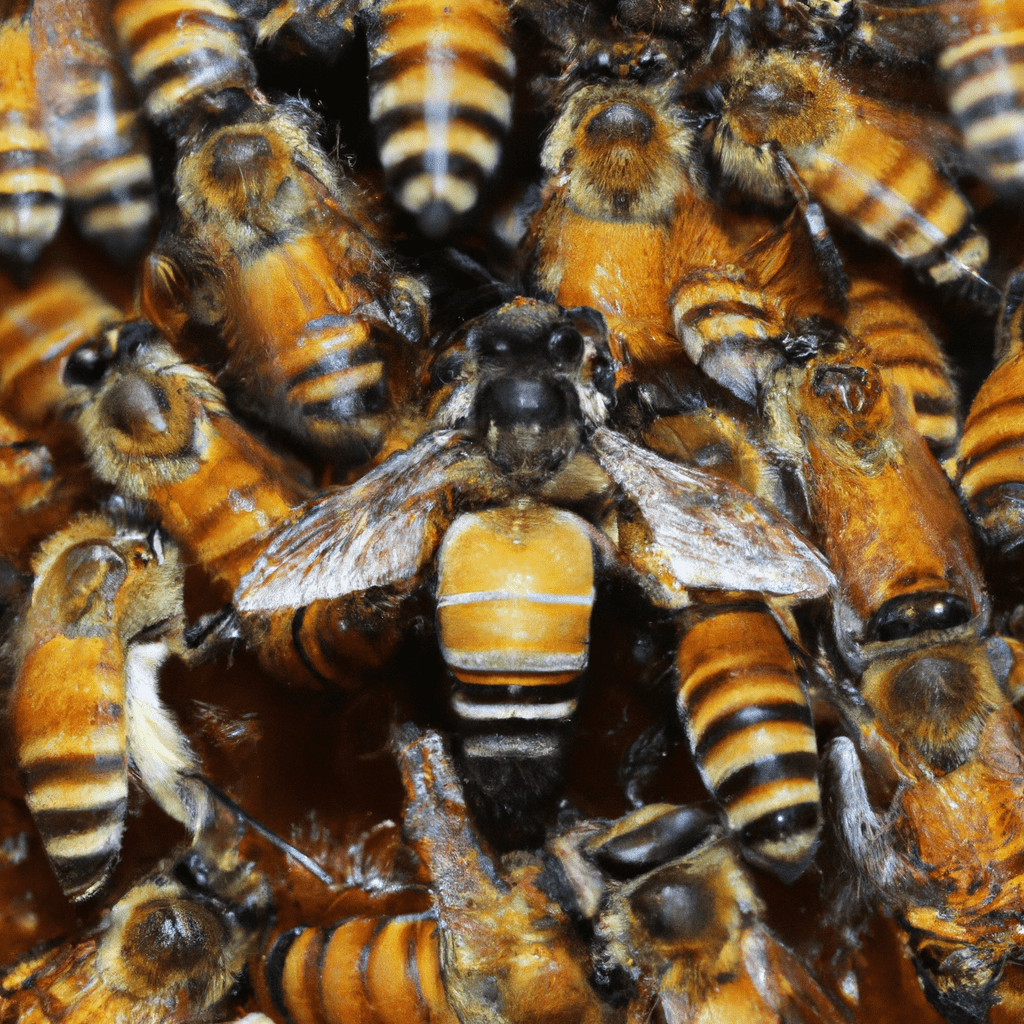
Weather plays a significant role in honey bee aggression. During hot and humid weather, honey bees tend to be more aggressive than when the temperature is cooler. They become agitated and more easily triggered to attack.
4. Chemical interference
Chemicals can interfere with the natural communication system of bees and make them more aggressive than usual. Chemicals used in pesticides, herbicides, and even in perfumes can set the bees off and make them aggressive towards humans.
5. Lack of resources
If the hive lacks resources or is under stress, honey bees may become aggressive. When resources like nectar and pollen are scarce, the bees may fight over the limited resources, and this could lead to aggression.
6. Queenlessness
When a hive loses its queen, honey bees can become unpredictable and aggressive. The queen is the heart of the colony and provides the bees with vital pheromones that help them communicate and stay calm. However, when the queen is absent, the bees become anxious, and aggression can occur.
So, honey bees can become aggressive when they feel threatened, disturbed, or are lacking resources. Weather conditions and chemical interference can also contribute to bee aggression.
It’s crucial to always respect bees and their habitat to avoid getting stung. If you do encounter an aggressive hive, stay calm and move away slowly to avoid provoking the bees. Remember, the best way to avoid bee stings is prevention.
How to Minimize Any Risks of Being Stung By Honey Bees
It is important to understand the behavior of honey bees to minimize any risks of being stung. The first step is to avoid disturbing a bee hive or its surroundings. It is also important to ensure that bee hives are kept away from areas where people or animals may be present.
Additionally, beekeepers should be aware of any potential allergic reactions to bee stings and take appropriate measures to guard against them.
Meanwhile, if a bee hive is situated close to an area where people and animals may be present, it is best to take preventative steps to ensure that the bees will not be disturbed. This includes covering the entrance of the hive so that bees cannot escape, and using nets or other barriers to create a physical barrier between the bees and any potential intruders.
Also, scent-repelling plants such as marigolds can be planted around the hive to discourage bees from flying away.
Conclusion
In conclusion, although honey bees can be potentially aggressive, they are also one of the most important and beneficial species of insects on the planet.
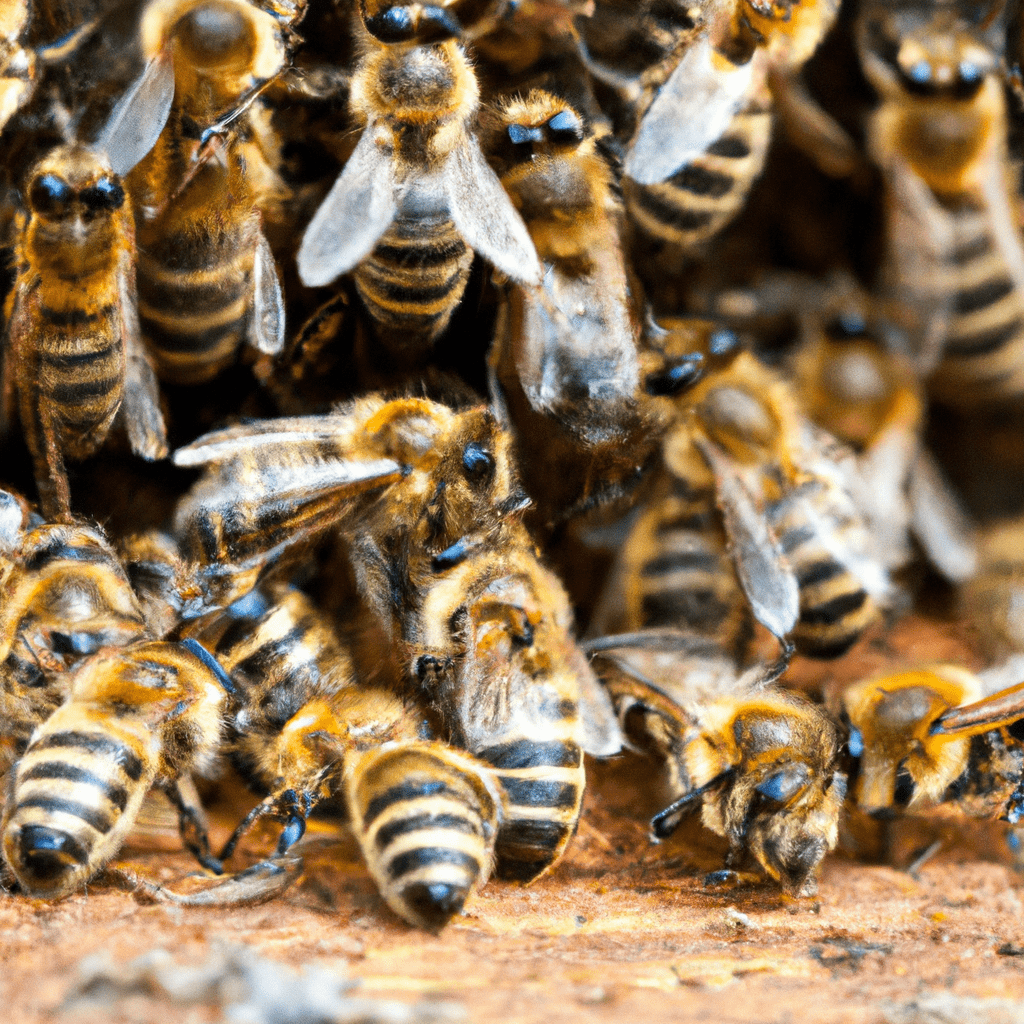
Nonetheless, it is important to be aware of their potential risks and to take appropriate precautions when living with or near a honey bee hive. With proper management, the risks can be minimized, while the benefits of these particular insects can be enjoyed.
FAQ
What are aggressive honey bees?
- Aggressive honey bees are a type of honey bee that can be more territorial and defensive than other honey bee species. They may be more likely to sting and can be difficult to manage for beekeepers.
Why would someone want to keep aggressive honey bees?
- There are several reasons why someone might choose to keep aggressive honey bees. These bees may be better suited for certain types of honey production or for pollination in specific areas.
- Another reason is that some types of aggressive bees, such as Russian honey bees, are considered less vulnerable to Varroa mites.
Are aggressive honey bees more productive than other honey bee species?
- There is no clear research indicating that aggressive honey bees are more productive than other honey bee species. However, there may be certain areas where their defensive nature could be an advantage, such as in areas where predators or pests are more prevalent.
What should I do if I am stung by an aggressive honey bee?
- If you are stung by an aggressive honey bee, it is important to seek medical attention if you experience any severe symptoms, such as difficulty breathing or swelling. Otherwise, remove the stinger as soon as possible and apply a cold compress to reduce swelling and pain.
How can I protect myself while working with aggressive honey bees?
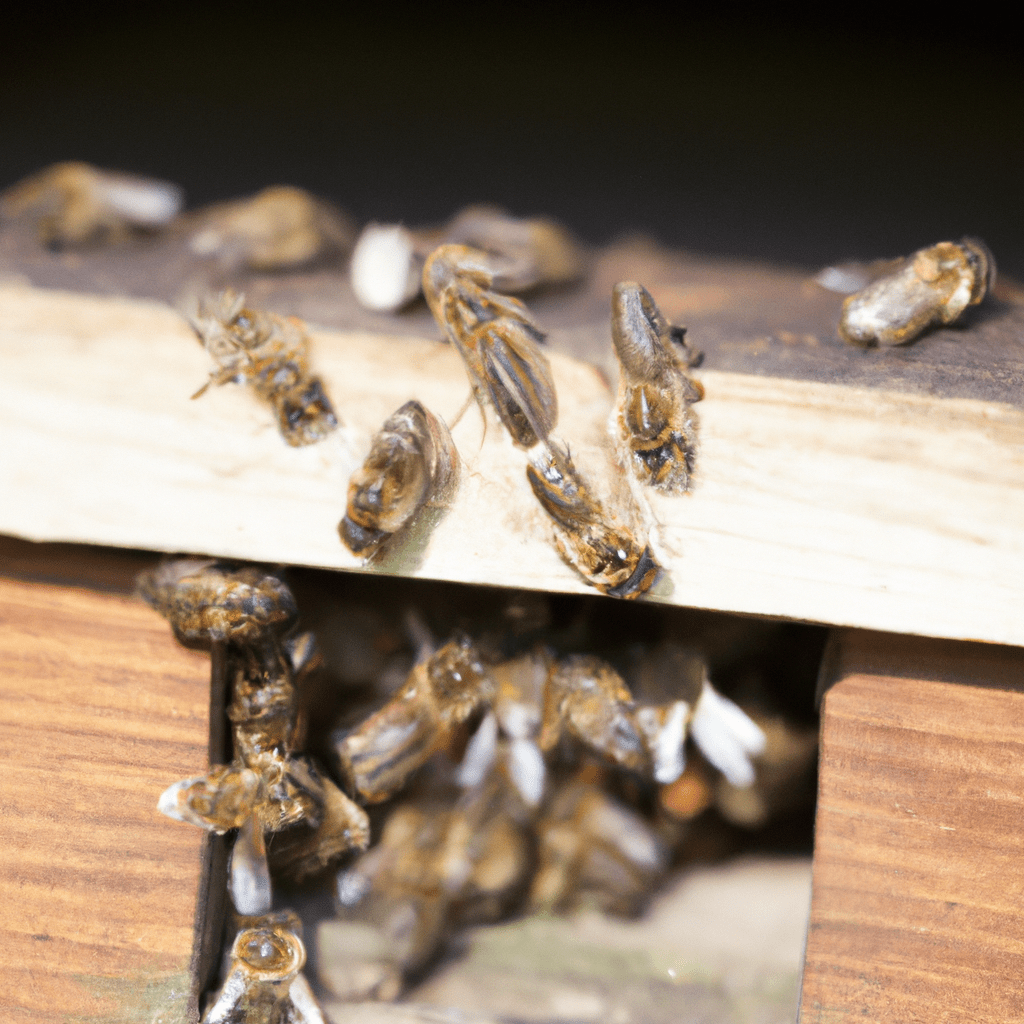
- Beekeepers working with aggressive honey bees should always wear protective clothing, including a bee suit, gloves, and a veil. They should also avoid wearing strong fragrances or using perfumes, as this can attract bees.
What are some common challenges when working with aggressive honey bees?
- Working with aggressive honey bees can present several challenges, including increased risk of stings, difficulty in managing aggression levels, and the need for specialized equipment and training. Beekeepers should be prepared to invest extra time and resources in managing their hives.
Are there any legal considerations when keeping aggressive honey bees?
- In some areas, there may be legal restrictions on keeping aggressive honey bees due to the potential danger they pose to humans and other animals. Beekeepers should be aware of any regulations in their area and ensure that they comply with all necessary permits and licenses.
